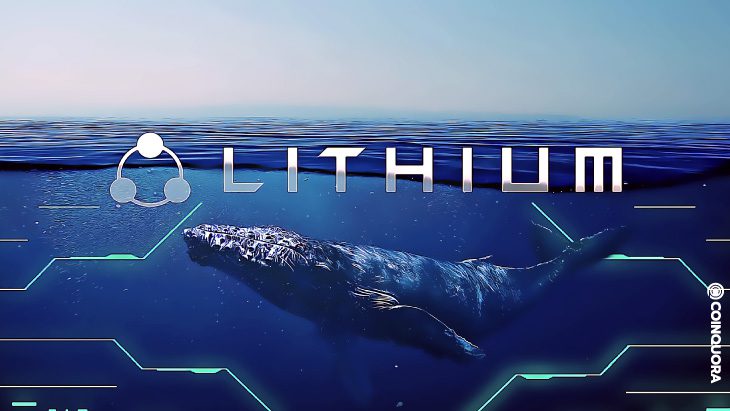- IDOs offer investors and projects more advantages than their predecessors.
- Lithium aims to solve the abundant problems in the cryptocurrency space.
- Lithium technology makes it harder for whales to control the market.
The cryptocurrency world is constantly changing and evolving at a rapid pace, welcoming new products and projects to the ecosystem every other day. The cryptocurrency fundraising arena is one of the fastest-growing areas in crypto. Since the initial coin offering (ICO) days in 2017, fundraising in crypto has evolved greatly with three major phases launching since then namely the Initial exchange offerings (IEO), security token offerings (STO), and initial DEX offerings (IDO). In this article we focus on the latter, focusing on the advantages of participating in an IDO token launch, the challenges facing token launches, and some of the solutions that provide the best IDO experience.
Initial DEX offering or IDO refers to a new fundraising model in crypto that allows users to swap their tokens for new cryptocurrencies on a decentralized launchpad. This model is quickly gaining attention from the crypto community due to its advantages over its predecessors. IDO token launches offer projects deeper liquidity while providing faster, transparent, and fairer trading alternatives to investors.
Nonetheless, the current IDO models still face a number of challenges in giving users supreme experience while participating in a token sale or launching one. The model has become synonymous with increasing scams and rug pulls, which has become a huge issue in promoting wider adoption of blockchain technology and the evolution of Web 3.0 solutions.
A New Decentralized World in Crypto Fundraising
IDOs offer investors and projects more advantages than their predecessors. Over the past two years, IDOs have gained massive popularity due to the advantages and transparency they offer. One of the major advantages of launching a token via an IDO is enhanced liquidity. IDOs shorten the time-to-market for new tokens, guaranteeing their quick entry into circulation backed by the DEX’s existing liquidity pool. This allows projects to monetize their tokens at fast speeds.
Additionally, IDOs also facilitate fast trading, whereby investors have the opportunity to purchase the IDO token and sell them directly during the same IDO. These types of cases have seen some investors gain over 10X return on their investment in an IDO.
Finally, IDOs are known for promoting transparent, open, and fair trading. With a completely decentralized fundraising approach, all investors have an opportunity to invest as early as possible on the token launch. This eliminates any cases of whale tending as the token issuer has no authorization or permission to kickstart the fundraising, it is all decentralized! However, IDOs are not foolproof to whales buying off all the listed tokens before other investors get a chance.
Solving the Problems on IDO Token Launches
The prevalence of decentralized launchpads has brought in a lot of complacency in token launches. This has allowed founders and development teams with poor records or simply bad intentions to take money from investors and never actually build. Additionally, the problem of whales taking over the IDO has seen many well-intentioned investors miss out on grabbing IDO tokens, leading to a centralized set of big investors who own the majority of the tokens.
In light of the growing influence of whales in token launches and scams in the field, Lithium Ventures (henceforth Lithium), a decentralized, cross-chain launchpad, is one of the projects formulating solutions to promote fairness and open IDOs in the crypto space. Launched in April 2021, Lithium aims to straighten the decentralized launchpad industry and solve the abundant problems appearing across the cryptocurrency space.
Leveraging its native $EBSC token, Lithium offers a unique opportunity for its holders to access IDOs, airdrops, and earning opportunities on its launchpad. Additionally, Lithium also focuses on finding high quality KYCed teams with previous solid records in order to make sure capital is shared to the teams that “are working on real-world problems”. While still in its baby steps, Lithium has successfully completed over 10 successful (8 oversubscribed) IDOs on its fully operational and cross-chain launchpad.
Stopping Whales in Their Tracks
As explained above, one of the biggest problems facing IDO launches is the influence of whales, or big investors, that swallow up the purchase of tokens very early. This only allows for a few investors to receive the IDO distribution, which could lead to centralization on the platform. To avoid this, Lithium implements the oversubscription model for launchpad projects instead of a first-come, first-serve basis.
Simply, Lithium entails a distribution model that wants to be distributed to the most people in the community rather than only focusing on raising the needed capital. Apart from enabling wide distribution, it also allows participants to purchase the IDO tokens in a fair and transparent manner.
Lithium offers a guaranteed allocation model that makes it harder for whales to control the market. Every investor in the IDO is promised to receive a fraction of the on-sale tokens. This means that when an IDO is over-invested, each investor still receives a fair portion of their allocated tokens. For example, if you invest 1 BNB into an IDO on Lithium and it is oversubscribed, you are still guaranteed a proportion of the tokens, you may receive 0.4 BNB worth of IDO tokens and a refund of 0.6 BNB back to your crypto wallet.
The platform also offers additional utility and value to the investors through its community. They create user loyalty by incentivizing participation on the IDOs using non-lottery airdrops. At the moment their launchpad is operational on BSC, Polygon, Solana and AVAX.


